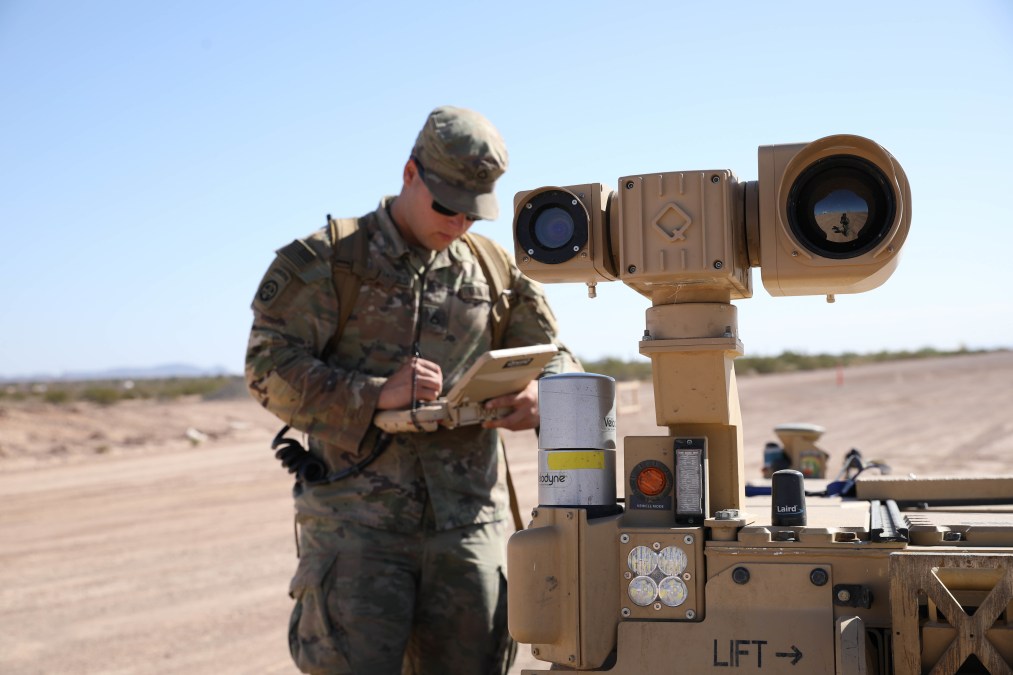The Army is trying to jump-start its venture capital arm

The Department of the Army is seeking to revitalize its internal venture capital firm, the Army Venture Capital Corporation (AVCC), which was created by Congress in 2002 but has sat dormant for 10 years without funding.
The firm now has a new managing director, Jake Chapman who spoke with FedScoop in his first interview. Chapman is still working to get funding from Congress to invest in startups, but if given $50-$100 million, he says the Army Venture Capital Corporation could be a critical part of getting more startups and emerging technology in the hands of troops.
“I think our organization can play in that liminal space where there is a working product, and there is a buyer but most [venture capital firms] won’t touch the company, but we could step in and say alright we will bridge you for the next 18 months to two years until that contract comes through,” Chapman told FedScoop.
The Army Venture Capital Corporation’s (AVCC) first iteration was a failure, investing in companies that deflated during the 2008 recession and not building the goodwill it needed in the valley to be a trusted partner. Or a least, that’s Chapman’s diagnosis and exactly what he wants to avoid.
“The first ten years were not super successful from a financial perspective,” Chapman said. “Army circa 2002 did not really know what was going on in venture capital.”
Chapman said he brings the type of experience the Army needs to succeed this time around. He is a trained lawyer and has led venture firms in the valley focusing on “deep tech” like aerospace and biotech.
“The number of people that looked hard at the defense tech space … is a small group of people. I am one of them,” he said.
The problem for many startups that want to work in the defense space is that money is relatively easy to find in small, short bursts but major contracts take years to land. Without big contracts in hand, venture firms are often reluctant to bet on a company that wants to work with the military. That dynamic has often pushed startups to focus on commercial clients that can bring them revenue.
Chapman’s solution: give startups a few million dollars as a signal to investors that the Army is really interested. The power of the AVCC will be in the “signal” they send to the investor community with their cash. Couple its investments with a strong network in the valley, Chapman says AVCC can be a critical part in bridging the so-called valley of death.
In addition to bridge funding, Chapman wants the AVCC to focus on deterring adversarial capital from funds with ties to countries like China and Russia and doing what he called “ecosystem mapping,” or building data sets on the startups and private funds that want to work with DOD.
“We want to push and pull technology into the department,” he said.
Chapman
Chapman has more than a decade of experience in the valley and working with venture investments, work he says gives him the perspective to know what venture firms need to hear from companies seeking a new funding round.
His pivot from the commercial world to DOD was largely driven by a desire to apply his skills to national security problem sets. His father and members of his family served in the military and he felt his skills could best be applied to financing the tech needed to win the next war.
“I think one of the best ways of doing that is investing in national security tech,” he said.
Lobbying Congress
Chapman continues to work on building support for the orginization. While the authorities for AVCC remain on the books, it doesn’t have money. He hopes to bring on six people to help run the shop but so far his top priority is lobbying Congress for money.
He said he has seen support from both sides of the aisle and chambers for the idea. Similar initiatives have been raised to appropriate $100 million for an “innovation” fund.
“This is a totally unique tool in the DOD tool set and it would be a shame to let it go away,” he said.




